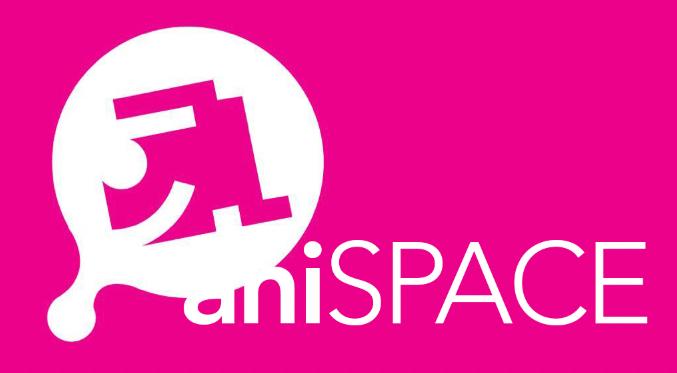Yam Pak Charitable Foundation
SCHOOL OF COMPUTING & INFORMATION SCIENCES
任白慈善基金電子計算及信息科學院
Higher Diploma in Crime and Security Science
towards BCSS(Hon.)
Future-proof jobs with IT and AI skills

Higher Diploma in Crime and Security Science
| Programme (taught in English and Chinese) |
2-year full-time or 3-year part-time higher diploma programme
to integrate the fields of criminology, criminal justice, data science and information technology. |
| Career in |
law-enforcement using ICT/AI, correctional service and NGOs,
finance sector to enhance compliance and regulations, teaching and research in crime and security science. |
| Further study |
Graduates may articulate to BCSS(Hons) degree programme
with perfect match in curriculum to bridge to Year 3. |
| Local admission: Year 1 entry |
Minimum 2222A (English, Chinese, Citizenship and Social Development and 2 other subjects)
in the Hong Kong Diploma of Secondary Education Examination (HKDSEE);
(or an equivalent qualification)
more |
| Local student finance |
Apply directly through
online application.
more |
| International student |
Non-Chinese speaking international student may have Chinese
courses substituted by other courses. more,hostels |

Why at SFU?
with Catholic values
is taught by caring staff with diverse
expertise and passion,
with 2 IEEE Fellows,
PhD from:
Imperial College London, Maryland, HKU, CUHK, TsingHua, Waterloo,
Criminology and security experts,
IT industry experience in
ATT Bell Labs, Huawei USA, IETF standards, 5G Wireless.

Program Objectives
- The programme aims to provide students with a comprehensive understanding
of the theories and principles of crime and security sciences.
Students will commend a sound foundation in criminal behaviour and criminal justice system,
enabling them to identify and assess crime-related issues;
- The programme aims to nurture students
to apply information and communication technology in crime and security disciplines.
Students will acquire knowledge and practical skills in areas such as data analysis,
cybersecurity, basic knowledge in information and communication technology,
enabling them to utilise technology effectively in crime prevention and security tasks;
- The programme aims to enhance students' analytical abilities
to tackle crime and security related issues.
Through courses such as statistics and data analysis,
data science and crime-related knowledge,
tudents will develop the skills necessary to utilise and analyse large datasets
to identify crime and security threats;
- The programme aims to nurture students to make ethical, logical and professional judgement,
and effective communication and teamwork in the field of crime and security.
Students will explore ethical dilemmas, legal frameworks,
and professional codes of conduct relevant to their roles in law enforcement,
cybersecurity, and criminal justice.
They will develop an understanding of the ethical and professional responsibilities
associated with the use of information technology in crime prevention and security management
and will work with multidisciplinary teams in developing effective solutions; and
- The programme provides students practical experience and industry readiness
by offering work placement and project-based work,
allowing students to apply their knowledge and skills in real-world settings.

Special Features of the Programme
Learning updated ICT knowledge and application are essentail in the industrial envirnoment.
The HDCSS is a dynanamic and specialized sub-degree Programme
that integrates the fields of criminology, criminal justice, data science and information technology.
This interdiscplinary programme equips students with a comprehensive understanding of crime prevention,
security management, and the role of applied science in addressing contemporary crime
and security challenges.
The unique features of the HDCSS programme are:
- Specialized Focus:
Focus on crime and security science, not just criminology and cybersecurity;
- ICT Orientation:
Is an applied science programme;
- Strong Industry Connection:
Have very strong industrial connections;
- Diverse Expertise:
Delivered by AI specialists, data scientists, criminologists, lawyers and experienced law enforcement practitioners;
- Job-Ready:
Graduates are work-ready; and
- Articulation Pathway:
Have a clear articulation pathway to the BCSS of SFU.

Program Learning Outcomes
Upon successful completion of the Program, students should be
able to:
- Demonstrate a comprehensive understanding of crime and security science theories
and fundamental knowledge in information and communication technologies;
- Identify problems in crime and security disciplines
and apply information technology concepts and data analysis tools
to analyse and investigate various forms of crime;
- Demonstrate proficiency in utilising information and communication technologies,
crime and security measures for development of information systems in crime and security disciplines;
- Demonstrate responsible, ethical and legal behavior
to address crime-related issues and propose effective solutions;
- Communicate effectively, both orally and in writing up reports on crime and security related tasks;
- Demonstrate the skills to work effectively in multidisciplinary teams;
- Communicate effectively with specialists as well as end-users
with professional responsibilities and ethical decision; and
- Apply practical skills and industry knowledge through work placement,
showcasing competence in real-life work environment.

Career Prospects
The HDCSS and BCSS programmes support the career development of the following four major groups of professionals:
- law-enforcers who prevent and detect crimes, e.g. the Police and Customs and Excise.
- those who supervise or reform prisoners/ex-prisoners, e.g. the Correctional Service Department and NGOs.
- those who work in enhancing compliance with financial regulations, e.g. the bank sector.
- those who want to pursue a teaching and research career in crime and security science.
Graduates in HDCSS, having met the minimum GPA requirement of 2.0,
are also prepared for further studies with Year 3 admission to BCSS(Hons.) offered by the School.

Local students
Applicants having completed middle school / high school / 12th grade
Year 1 Entry admission (Full-time / Part-time) requirements
For admission to Year 1 of the Programme, applicants must
satisfy one of the following admission requirements:
- have obtained Level 2 in five subjects
(including Chinese Language and English Language)
in the Hong Kong Diploma of Secondary Education Examination (HKDSEE); OR
- Have graduated from the Diploma of Applied Education or Diploma Yi Jin; OR
- have completed a Hong Kong Qualifications Framework (HKQF)
Level 3 programme that is approved by the University; OR
- Mature applicant aged 21 or above on 1 September of the year when admission is sought,
AND with relevant working experience and academic background; OR
- have obtained an equivalent qualification.

Apply for Admission (local students)
Direct Application for Year 1 Entry
To seek admission to the Program, applicants should apply via
online application.

Interview Arrangements
Shortlisted local applicants will be invited to attend an
admission interview. Applicants are requested to bring the
following when attending the interview:
- original and photocopy of Hong Kong Identity Card or
Passport;
- originals and photocopies of relevant academic credentials;
- originals and photocopies of school reports for the last
three years; and
- certificates and results of HKDSEE/HKALE/HKCE.

Tuition Fee
Local Student
The total tuition fee for the 2025/26 intake of the 2-year
HDCSS programme is HK$124,180.
With PNS scholarship, the net fees for full-time student are reduced to:
Year 1: $42,090
Year 2: $42,090
Total over 2 years: $84,180
The fee for part-time student
Year 1: $41,390
Year 2: $41,390
Year 3: $41,390
Total over 3 years: $124,170

Apply for admission (International
students)
International students may apply: All courses in HDCSS are taught
in English, where Chinese language courses may be replaced by
other courses for non-English speaking students.
Admission requirements for
international students
The equivalent qualification to meet the admission requirements for local
studentsis generally the successful completion of high
school education in a 12-grade school system. It will include
basic STEM courses and sufficient preparation in English
proficiency to enable study in this degree program with lectures
taught in English. Performance based on school transcript will be
evaluated individually. Non-English speaking international
students may be exempted from Chinese language study.

Non-local student tuition fee
The annual non-local student tuition fee for the 2025/26 intake
of the 2-year HDCSS (or HDCSS) programme is HK$96,310. (Exchange
rate: HK$7.8 = US$1)


Enquiries
School of Computing and Information Sciences:
Office Telephone: (852) 3702 4211
WhatsApp: (852) 5269 3846
Email: cis-info@sfu.edu.hk
WeChat ID: wxid_ohv675ayadso52
Public Affairs Office:
Office Telephone: (852) 3702 4388
Email: pao@sfu.edu.hk
Campus Address:
2 Chui Ling Lane, Tseung Kwan O, N.T. (Exit B, Tiu Keng Leng MTR Station)

Curriculum
Year 1
Program Core course - Interdisciplinary Crime Science
- Introduction to Crime Science (3)
- Introduction to Criminal Justice System (3)
- Management Principle and Practices in Law Enforcement Agencies (3)
Program Core course - Maths
- Mathematics I (3)
- Statistics and Data Analysis with Crime Events (3)
Program Core course - IT
- Introduction to Programming (3)
- Introduction to Computing Systems and Networks (3)
Program Core course - Applied Science
Language and Communication course
General Education Course
Year 2
Program Core course - Interdisciplinary Crime Science
- Financial Mediation (3)
- Crime Prevention and Security Management (3)
- Crisis Management and Negotiation (3)
- Psychology and Crime (3)
Program Core course - Maths
Program Core course - IT
- Introduction to Cybersecurity (3)
- Data Science for Crime Prevention and Detection (3)
- Web Development and Security (3)
Language and Communication course
- Chinese Communication (3)
General Education Course
Return to index map

Internship
Students are highly encouraged to take the Internship course
to gain industry experiences.
Industry parters are offering Internship to our students
and are also hiring from our graduates.
Partial list of our industry partners are:
Return to index map

Frequently Asked Questions on HDCSS
Job market
IT and AI have already revolutionized crime and law-enforcement
so that this study will future proof the jobs in these areas.
Programming crime scientist,
data scientist for crime prevention and detection,
web development for secure and compliant systems.
Admission
If I do not meet the basic admission requirements,
will I still be enable to study this higher diploma programme?
Students could study the Diploma
in Foundation Studies of Higher Education
and be admitted to HDCSS programme
when they graduate from the diploma.
Do I have a higher chance of admission in the HDCSS programme
if I have studied ICT?
Does ICT have a higher weighting than other electives e.g. Economy?
In the selection process,
the applicant's scores in two elective subjects
in the Hong Kong Diploma of Secondary Education Examination
will be considered as additional scores.
Although prior study in ICT may help,
other factors such as interview,
motivation and interests of the applicant are also considered.
Would some subjects of the HDCSS be exempted
if I have studied some related subjects in the Diploma?
We can only exempt subjects that have QF level 4 or above.
Will there be interview after the annoucement of JUPAS result?
Yes. If students are interested in our programme,
welcome to give us a call or whatsapp to 52693846,
so we can arrange special interview.
I have already complete a Diploma Yi Jin or IVE,
can I apply for HDCSS?
One who has already complete Diploma Yi Jin may apply for HDCSS.
About study
Does the school help the BCSS students buy the expensive professional softwares for their personal use?
The school has established AI laboratory and installed the needed software.
Students may use the lab facilities without having to buy their own.
Would it be difficult to understand the contents
if I have never studied and contacted any related topics or knowledge?
No. When we design the programme,
we do not require that the students have studied any related topics or knowledge.
Does the school provide any supports for the HDCSS students
if they have the opportunity to join the Hong Kong
or international competitions?
Our institute has budget to support students' competitions.
About fees
Is there any scholarship programme for the HDCSS students?
If the new students score 13 points in the best five subjects in the DSE,
they can also receive an admission scholarship of $30,000.
About the CIS School
What are the qualifications of the academic staff
of the HDCSS programme?
The teaching faculty is composed of
both local and international experts in crime, AI, ICT, and 5G,
including some staff with rich industry experience and Fellows of IEEE.
Return to index map





























